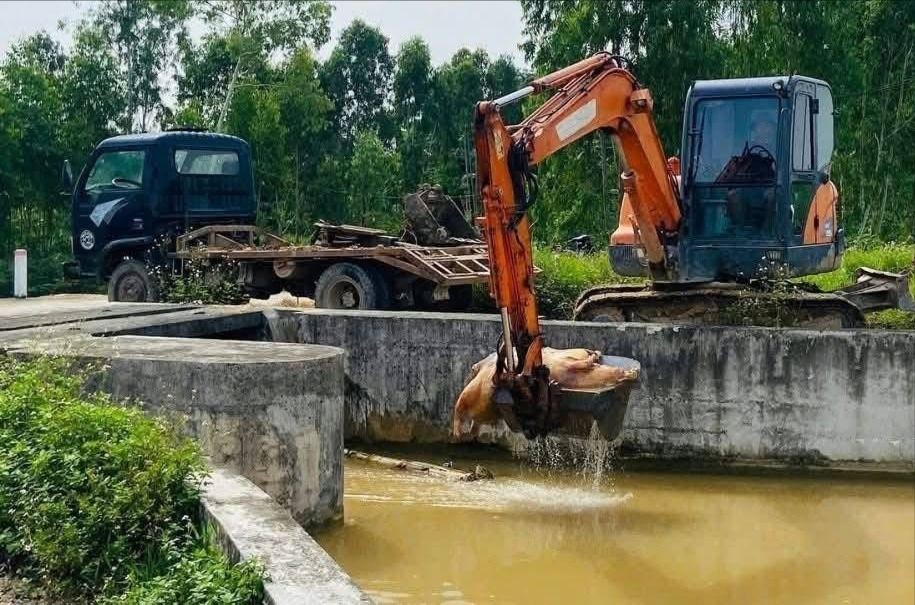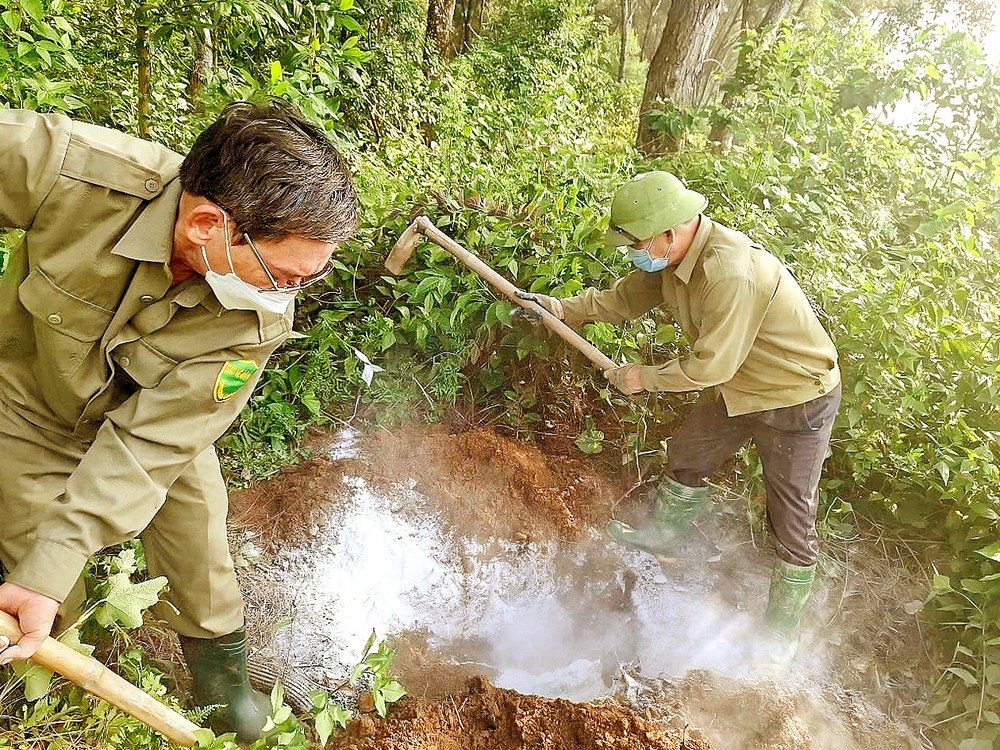The Department of Livestock Production and Animal Health under the Ministry of Agriculture and Environment, on July 16, reported that since the beginning of 2025, a total of 514 outbreaks of ASF have been recorded across 27 provinces and cities, resulting in over 30,000 pigs infected, dead, or culled.
Rising trend raises alarms
ASF has shown signs of resurgence in recent weeks, with 248 active outbreaks in 20 provinces and cities still within the 21-day monitoring period. These hotspots account for more than 20,000 pigs affected. The disease has been especially persistent in several Northern mountainous provinces, largely due to the reemergence of previous outbreaks, inadequate biosecurity measures in small-scale farming operations, and a lack of vaccination.

Compounding the problem is the alarming trend of farmers concealing outbreaks. Rather than reporting suspected infections to local authorities or veterinary services for intervention, some farmers are opting to sell off infected pigs quickly or dispose of carcasses in the environment, thereby accelerating the spread of the disease.
According to the Ministry, efforts to cover up ASF outbreaks are taking many forms such as hasty sales, illegal slaughter, local consumption, indiscriminate dumping of carcasses, and falsified reporting. These behaviors are driven primarily by fear of economic loss and a lack of confidence in compensation or disease control policies. In some areas, local veterinary officials have been accused of negligence, failing to carry out disease surveillance, slaughter inspections, and hygiene enforcement effectively.
Accountability demanded for local veterinary agencies
Since early July 2025, a growing number of provinces have reported dead pigs dumped along canals, roadside areas, and even in residential neighborhoods. In Thanh Hoa Province, nearly 100 pig carcasses—many in advanced stages of decomposition—were retrieved from the Bai Thuong canal system. Similarly, in Gia Lai Province, large numbers of floating pig carcasses have been spotted in the Van Phong Canal, causing severe water pollution.
Disturbing images circulated on social media showed pig carcasses drifting in the waterways of Viet Yen District, Bac Ninh Province—an area currently grappling with a new ASF outbreak on July 16. The problem is not limited to rural areas. In Hanoi’s Suoi Hai Commune, dozens of dead pigs were found dumped on both sides of the road leading into Hieu Luc Hamlet. Although local authorities have buried the animals, the burial site lies alarmingly close to the road, emitting a foul odor and attracting swarms of flies, sparking outrage among residents.
The indiscriminate dumping of pig carcasses has become widespread and poses a significant environmental and public health threat, especially as ASF continues to resurface in many regions and is being actively concealed by some farmers. A Ministry of Agriculture and Environment representative acknowledged that the root cause of this worsening situation lies in systemic flaws in disease control and local veterinary management.

Mr. Phan Quang Minh, Deputy Director of the Department of Livestock Production and Animal Health, noted that under current law, dumping animal carcasses into the environment carries a fine of VND5–6 million. However, enforcement remains ineffective due to a lack of direct oversight.
Deputy Minister of Agriculture and Environment Phung Duc Tien pointed out a troubling contradiction. While law mandates that pigs infected with ASF must be culled and are strictly prohibited from being sold, the lack of organized culling operations has left farmers with no recourse but to dump the carcasses.
He called for clear accountability, demanding that regional veterinary sub-departments and inter-communal veterinary stations be held responsible if similar incidents recur. “If a province allows this to happen, the head of that region’s veterinary sub-department must be held accountable,” Deputy Minister Phung Duc Tien stressed. He also urged the local veterinary system to move beyond paper-based guidance and step up on-site inspections.
Deputy Minister Phung Duc Tien further stated that The Ministry of Agriculture and Environment will direct veterinary agencies to work closely with local authorities to monitor, detect, and respond swiftly to any attempts to conceal ASF outbreaks. He emphasized that the Government has already issued regulations allowing for both administrative penalties and, in severe cases, criminal prosecution for those responsible for spreading disease. “If enforcement is done seriously,” he concluded, “the illegal sale of infected pigs will no longer be tolerated.”
























